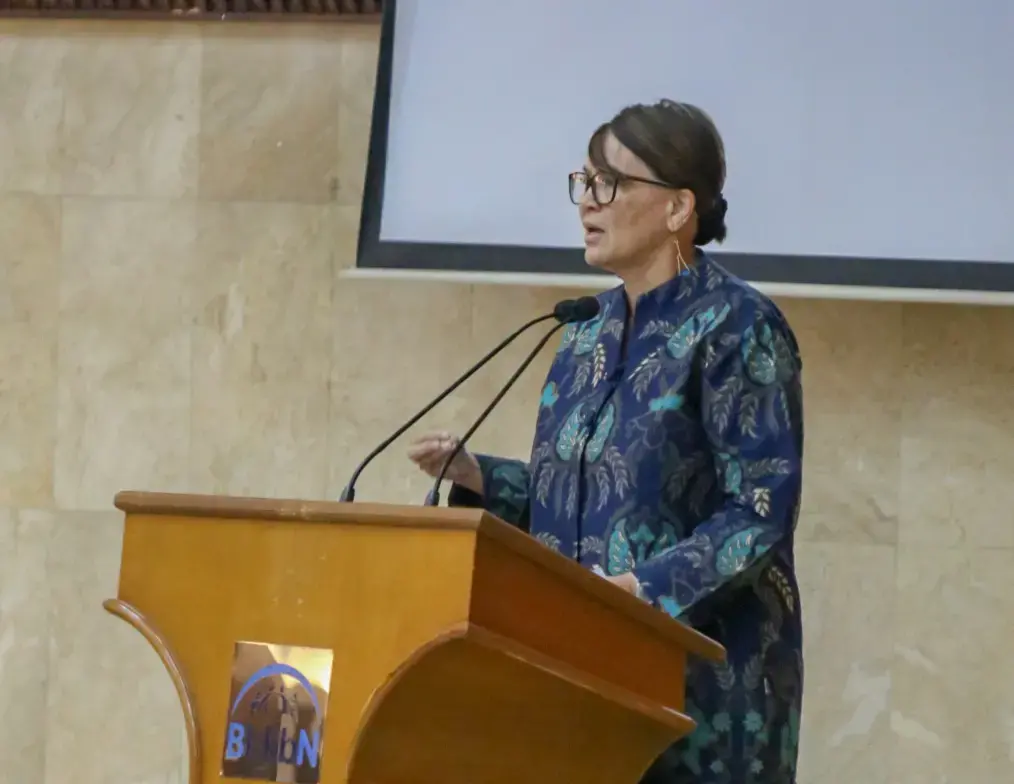Observing the best practices on decentralization, family planning and reproductive health programmes in the Philippines was the primary objective of an Indonesian delegation’s visit to the country in late August.

A visit to the Barangay Birth Clinic and Half-Way Home in Cagwait Municipality of Surigao del Sur, Philippines.
The study visit was part of the bilateral South-South Cooperation on family planning between Indonesia and the Philippines, which started when the National Population and Family Planning Board (BKKBN) and Population Commission signed an MoU on 30 August, 2012, in Manila. There are four areas of focus between the two countries – the role of religious leaders in family planning, decentralization of family planning and reproductive health, adolescent and reproductive health and reproductive health in a humanitarian setting.
There were 14 participants from Indonesia who took part in the week-long training, including representatives from the District Office of Family Planning, District Office of Health (DOH), District Planning and Development Board (Bappeda) in the districts of Bantul and South Bangka, from BKKBN, the Ministry of Health and UNFPA Indonesia.
The Government of the Philippines successfully transferred the responsibility of its family planning and reproductive health programmes to the municipality, city and provincial levels after decentralization. The success of this move led to the significant improvement of health and reproductive health indicators such as maternal health, family planning and immunization. The transformation of leadership was manifested by municipality mayors and other stakeholders in the ownership of the programme through the six building blocks of health systems (leadership and governance, health budgeting, human resource development, access to medicine and technology, information health system, and health delivery system).
“I was amazed by the high commitment of Municipality Mayors in family planning and reproductive health programmes in the Philippines,”said Dr. Maya, head of the District Office of Health, Bantul District of Yogyakarta. “The Mayors were able to use their personal stories to share the ownership of the programme to the other stakeholders, including local health board of barangays, the villages.”

Mayor Daisy's Leadership Transformation Programme
Ms. Elvira Liyanto, the Programme Officer for Maternal Health with UNFPA Indonesia, joined the study visit and said it was interesting to learn how the central government still provided guidance and technical support through the DOH representative, even in a decentralized system.
“The leadership shown by the municipal leaders followed by the municipal health officers in delivering the health services was good, they understood the problems and became part of the solution,” she said of the lessons learned from the mission.
There was also a call to streamline health management representatives at a national and local level, to ensure there is effective communication and alignment with policy and regulations from central government.
By the end of the study visit (internship), the participants had developed their lessons learned and action plans. The representatives of Bantul and South Bangka Districts were all eager to apply the leadership transformation programme in their respective districts.



